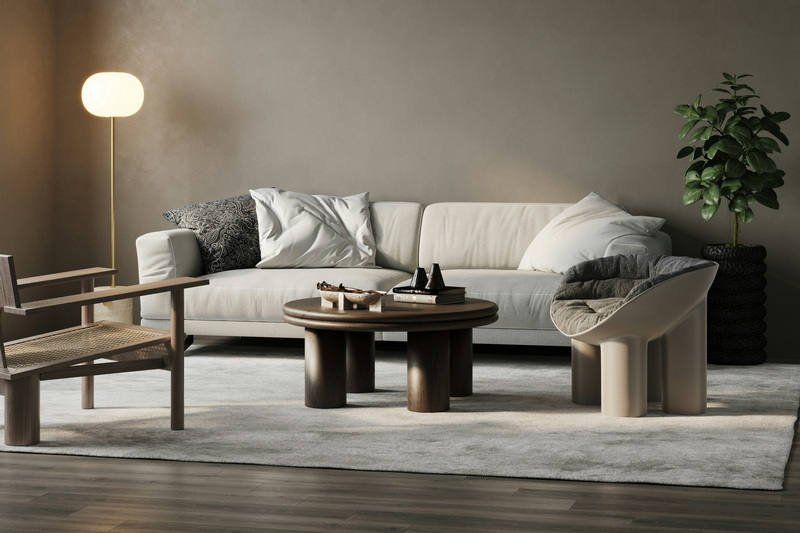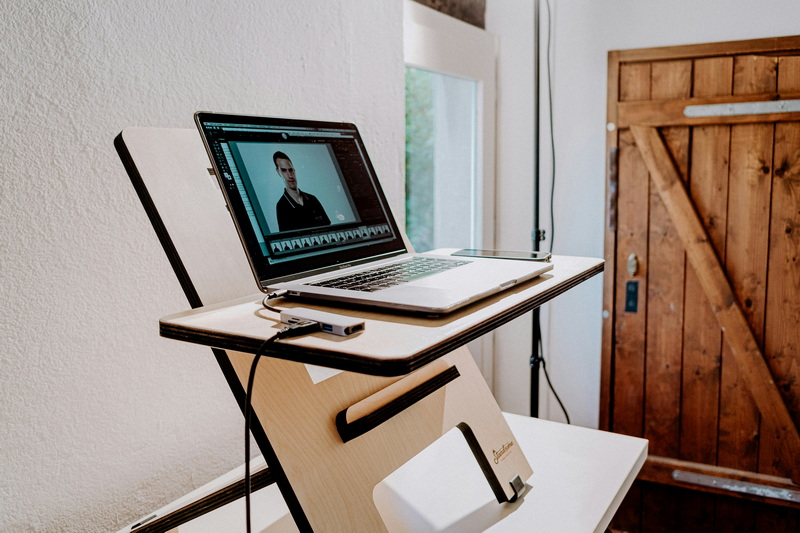English 




Views: 222 Author: Astin Publish Time: 2025-03-03 Origin: Site



Content Menu
● Introduction to Aluminum Furniture
● Benefits of Using Aluminum Furniture
>> Environmental Considerations
● Tips for Maintaining Aluminum Furniture
>> Applying Protective Coatings
>> Storage During Harsh Weather
● Environmental Factors Affecting Metal Corrosion
● Choosing the Right Type of Aluminum Furniture
● Design Considerations for Outdoor Spaces
● Combining Aluminum with Other Materials
>> 1. Does Aluminum Furniture Require Special Care?
>> 2. Can Aluminum Furniture Be Used in Coastal Areas?
>> 3. Is Aluminum Furniture More Expensive Than Other Materials?
>> 4. Can Aluminum Furniture Be Painted or Coated?
>> 5. How Long Does Aluminum Furniture Typically Last?
Aluminum outdoor furniture has become increasingly popular due to its durability, lightweight nature, and resistance to corrosion. Unlike iron and steel, aluminum does not rust, making it an ideal choice for outdoor settings. This article will delve into the properties of aluminum, why it doesn't rust, and provide tips on maintaining aluminum furniture to ensure it remains in excellent condition.

Aluminum is a versatile metal used in various applications, including outdoor furniture. Its popularity stems from several key benefits:
- Lightweight and Portable: Aluminum furniture is easy to move around, allowing users to rearrange their outdoor spaces effortlessly. This portability is particularly useful for those who like to change their patio layouts frequently.
- Durable and Weather Resistant: Aluminum is highly resistant to corrosion, making it suitable for outdoor use in various weather conditions. It withstands rain, snow, and even salt air environments, which can be particularly harsh on other metals.
- Modern Aesthetic: Aluminum furniture offers a sleek, modern look that complements a wide range of décor styles. Its versatility allows it to fit seamlessly into any outdoor space, adding an elegant touch.
Rust is a form of corrosion that occurs when iron or its alloys, like steel, react with oxygen and moisture. Aluminum, however, does not contain iron, which is why it doesn't rust. Instead, when exposed to air, aluminum forms a protective layer of aluminum oxide. This layer acts as a barrier, preventing further corrosion and protecting the metal beneath.
Even if the surface of aluminum furniture is scratched, it quickly reoxidizes, reforming the protective layer. This self-healing property ensures that aluminum remains resistant to corrosion even in humid or wet conditions.

Aluminum furniture is known for its durability. It can withstand daily use and harsh weather conditions without significant deterioration. Although aluminum is softer than metals like steel, making it prone to dents, its lightweight nature and corrosion resistance make it a reliable choice for outdoor settings.
For those living in coastal areas, aluminum is particularly beneficial. Salt air can accelerate corrosion in metals like iron and steel, but aluminum remains unaffected. This makes it an excellent option for homes near the sea.
Aluminum furniture is available in a variety of styles, from minimalist to ornate designs. Its versatility allows it to blend with different décor themes, making it suitable for both modern and traditional outdoor spaces.
While aluminum is naturally resistant to rust, regular maintenance can extend its lifespan and keep it looking its best.
Cleaning aluminum furniture regularly is essential. Use warm water, a mild detergent, and a soft cloth to wipe down surfaces. For those living in marine environments, more frequent cleaning may be necessary to remove salt residue.
Although aluminum naturally forms a protective oxide layer, applying additional coatings can provide extra protection. Linseed oil, car wax, or silicone oil can be used to block moisture and prevent any potential corrosion.
If possible, store aluminum furniture during extreme weather conditions, such as heavy snowfall or intense sunlight, to prevent any potential damage. However, aluminum's durability means it can withstand most weather conditions without needing to be stored.
While aluminum doesn't rust, understanding the environmental factors that influence metal corrosion can help in maintaining other types of outdoor furniture.
- Moisture: High humidity and exposure to rain or snow can accelerate corrosion in metals like iron and steel.
- Salt Air: Living near the coast exposes metals to salt air, which is highly corrosive.
- Temperature Extremes: Extreme temperatures can also affect metal durability, though aluminum remains relatively unaffected.
When selecting aluminum furniture, consider the type of aluminum used. There are different alloys, each with its own strengths:
- 6061 Aluminum: Known for its strength and corrosion resistance, this alloy is often used in outdoor furniture frames.
- 6063 Aluminum: This alloy is more commonly used for decorative elements due to its smooth finish and excellent corrosion resistance.
When designing your outdoor space, consider how aluminum furniture can enhance the area. Here are a few design tips:
- Balance Functionality with Aesthetics: Ensure that your furniture serves both functional and aesthetic purposes. Aluminum furniture can add a modern touch while providing comfortable seating.
- Consider the Color Scheme: Choose aluminum furniture that complements your outdoor color scheme. Aluminum can be powder-coated in various colors to match your décor.
- Add Textiles and Plants: Incorporate textiles like cushions and throws, and add plants to create a cozy and inviting atmosphere.
Aluminum furniture can be combined with other materials to create unique and stylish outdoor spaces. Here are a few combinations:
- Aluminum and Wicker: Combining aluminum frames with wicker or rattan seating adds a natural touch to your outdoor space.
- Aluminum and Wood: Pairing aluminum with wooden accents creates a harmonious blend of modern and traditional elements.
Aluminum outdoor furniture is an excellent choice for those seeking durability and low maintenance. Its resistance to corrosion, combined with its lightweight and stylish design, makes it ideal for outdoor spaces. By understanding why aluminum doesn't rust and following simple maintenance tips, you can enjoy your aluminum furniture for years to come.

Aluminum furniture is generally low maintenance. However, regular cleaning and occasional application of protective coatings can help maintain its appearance and extend its lifespan.
Yes, aluminum furniture is suitable for coastal areas. It resists corrosion from salt air, making it an excellent choice for homes near the sea.
The cost of aluminum furniture can vary based on design and quality. Generally, it is comparable to other durable materials like wicker or recycled plastic.
Yes, aluminum furniture can be painted or coated. However, it's essential to use appropriate paints or coatings designed for aluminum to ensure durability and prevent flaking.
Aluminum furniture can last for many years if properly maintained. Its durability and resistance to corrosion make it a long-lasting option for outdoor spaces.
[1] https://urbanlandproducts.com/will-aluminium-outdoor-furniture-rust/
[2] https://blog.csdn.net/weixin_40289064/article/details/79669930
[3] https://jardina.com/blogs/all/does-aluminium-patio-furniture-rust
[4] https://www.sohu.com/a/126276564_155881
[5] https://www.build.com/cast-aluminum-patio-furniture/a22118
[6] https://www.sohu.com/a/364716744_528671/
[7] https://tradewarehouse.co.uk/blogs/garden-furniture/how-to-remove-rust-from-metal-garden-furniture
[8] https://www.unodc.org/documents/Wildlife/Guide_Timber_CH.pdf
Top Aluminum Furnitures Manufacturers and Suppliers in Czech Republic
Top Aluminum Furnitures Manufacturers and Suppliers in Poland
Top Aluminum Furnitures Manufacturers and Suppliers in Belgium
Top Aluminum Furnitures Manufacturers and Suppliers in Finland
Top Aluminum Furnitures Manufacturers and Suppliers in Denmark
Top Aluminum Furnitures Manufacturers and Suppliers in Greece
Top Aluminum Furnitures Manufacturers and Suppliers in Portugal
Top Aluminum Furnitures Manufacturers and Suppliers in Austria
Top Aluminum Furnitures Manufacturers and Suppliers in Norway
Top Aluminum Furnitures Manufacturers and Suppliers in Sweden
